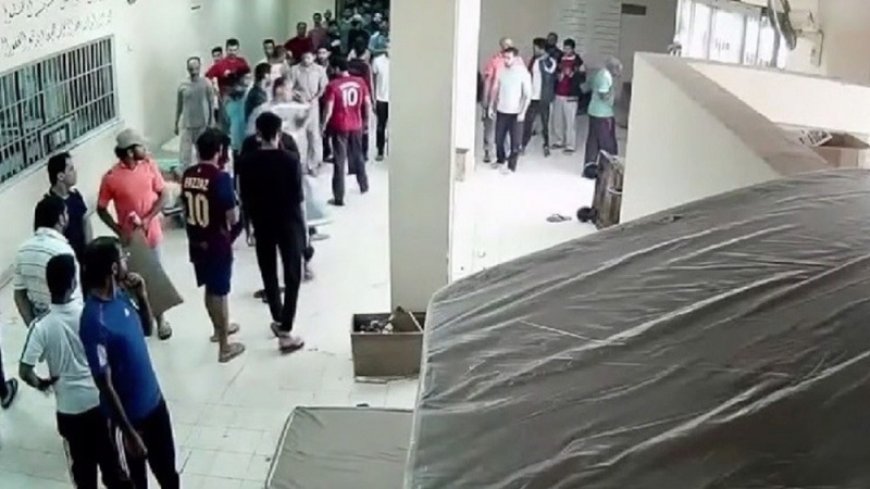Many people in Bahrain's notorious Jau jail go on hunger strike at the same time.
Many people in Bahrain's notorious Jau jail go on hunger strike at the same time.

Hundreds of political prisoners in Bahrain are on a hunger strike to protest the harsh conditions and unfair treatment they face at the dreaded Jau Prison. Sayed Ahmed Alwadaei, an activist with the Bahrain Institute for Rights and Democracy who lives in exile in Britain, said on Wednesday that hunger strikes started in two jail blocks in Jau on Monday and three others on Tuesday. Alwadaei said that the people in the blocs who were on hunger strike were "political prisoners." In a statement released by the National Islamic Society al-Wefaq, Bahrain's largest opposition group, the prisoners said they started the hunger strike because prison officials wouldn't let them pray and they were locked up for 23 hours every day. The statement also said that jail officials arbitrarily separated inmates, made it hard for them to see their families, and didn't give them enough health care. Inmates are also not allowed to go to school.
In a statement, the inmates said, "Our demands are not small. They are very important and necessary for human life, even at the lowest levels known to human history." The prisoners' hunger strike shows that they want basic rights and to be treated with respect, and it is a warning that rights must not be ignored, the statement said. The prisoners thought that there were hundreds of people who took part in the strike. Some prisoners in Jau "returned their meals" on Tuesday, according to Bahrain's Directorate-General for So-Called Reform and Rehabilitation. Videos shared on social media showed a show of unity in the village of Sanabis, which is near the capital city of Manama. Protesters carried signs that said things like "Save Bahrain's prisoners" and "Our sons are in danger." Human rights groups have said that Jau prison has "inhumane conditions" and that prisoners are tortured and mistreated in many ways, both physically and mentally. In the most latest human rights report on Bahrain from the US State Department, it was said that a tuberculosis outbreak was reported by the families of prisoners in June 2022.
After the 2011 popular protest, Bahrain, where the US Navy's 5th Fleet is based in the Middle East, has been cracking down on all dissidents for the past 10 years. Since Saudi Arabia and the United Arab Emirates helped Bahrain put down pro-democracy protests, the country has jailed activists, deported others, taken away the passports of hundreds of them, and shut down its main independent newspaper. In 2020, the Manama regime also made it public that relations with Israel were back to normal. Al-Wefaq said in a statement at the time that all parts of Bahraini society were strongly against establishing diplomatic ties between the Manama and Tel Aviv governments. The opposition party said that the normalization deal with Israel goes against Bahrain's past and its identity as an Islamic country.













































